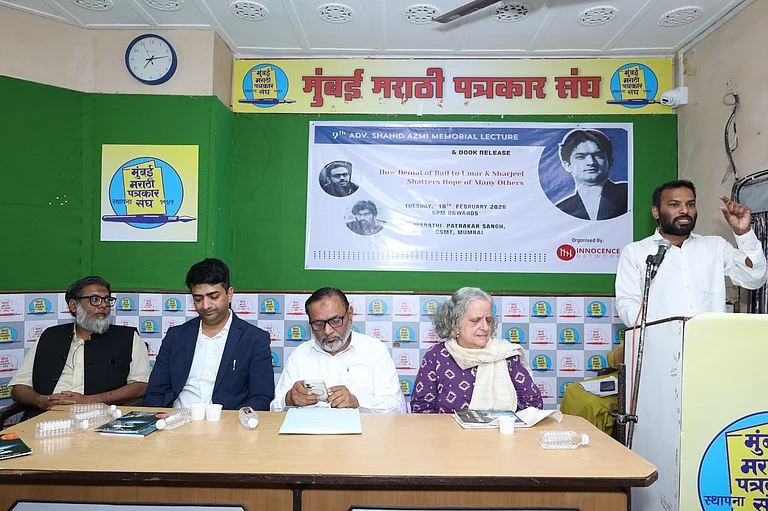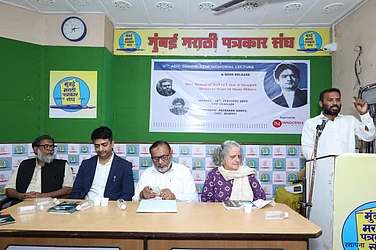In what is being termed as the 'semi-final' ahead of the Lok Sabha elections in 2024, the BJP is heading towards victory in three out of the four states that went to polls recently, while the Congress is looking comfortable in Telangana. The BJP will now be in power in 12 states on its own, while the Congress, the second largest national party, will come down to three after losing Rajasthan and Chhattisgarh.
While a lot of factors could be attributed to the parties' gains and losses, the real nucleus often lies in sustained political mobilisation that eventually wins over the confidence of voters. These unofficial party organisations or cadres garner support for the local candidate by organising community events and programmes. This is something that the BJP has done succesfully, in contrast to Congress which lacks a strong cadre base. Could this have contributed to the loss of Congress in two states? Only time will tell.
While Outlook analyses the 2023 assembly elections results in four states, we also take a look at our 'Cadre Blockchain' issue from April 25, 2022 that looks at the role of these cadres as 'footsoldiers of political parties'— while some are losing steam, others are gaining new zeal.
The BJP was able to project Modi as a leader with worthy credentials, deliver nuanced messages of nationalism to different target audiences and deflect the Opposition, owing to a political machine that was miles ahead of its competition in terms of organisational foundation and material resources, writes Manoj Kumar Jha. However, in contrast, Congress lacks a strong cadre base and the party is essentially non-existent in Bihar, Uttar Pradesh and Bengal, India’s most populous states, he further writes.
The issue also looks at what caused the death of political cadre of Congress - the party's student and youth wings. The decision to hold internal elections to elect people to leadership positions in the National Students' Union of India (NSUI) and Indian Youth Congress (IYC) in 2007, had a dramatic impact on the fortunes of both the organisations.
The 'Unsung heroes of democracy' as Rahul Verma calls them, often engage in mobilisational activities with the aspiration that one day they will rise up the ranks. They are also often unpaid. And yet, they play a major role in parties' performances. Through the issue, Outlook also looks at the efforts of party cadre of Shiv Sena, the Rashtriya Swayamsevak Sangh, the Bahujan Samaj Party and the Communist Party of India (Marxist).


























